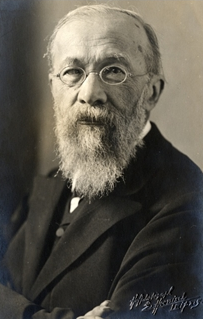William Wundt (1832-1920) was a prolific man of science, initially trained as a physician, his passion for knowledge not only motivated him to write the monumental text published in 1873, Grundzüge der physiologischen Psychologie (Translated in English as Principles of Physiological Psychology) that would lead him to found the first official psychology laboratory and lay a scientific foundation for psychological research today, but, in his lifetime, he would compose over 53,000 pages of his findings, covering diverse topics such as spiritualism, politics, ethics, history, animal physiology, poisons, optometry, and linguistics among others. (Stanford Encyclopedia of Philosophy)
Theoretical Principles
The thesis that shaped Wundt’s work in psychology builds upon the general concept of cause and effect asserting that for every physical behavior, there is a corresponding psychological event and vice versa. To the purpose of psychology, he proposes three goals, to analyze the components of consciousness, to find how these components connect to one another, and to define their function in physiological terms. Wundt held that human experience consisting of physical sensations and memories interact through connections in the brain to produce implicitly subjective sensory results: emotion. The process by which emotions occur he termed psychological compounding.
Experimental Methods
To test this model, Wundt maintained that research constructs need to rely on measurable variables, repetition, and variation in experimental conditions. Moreover, he incorporated a somewhat paradoxical element into his methods that seemed to inspire as much ambition as it created controversy within the burgeoning psychologist community, experimental introspection. This he defined as experiential attention to the quality, intensity, and duration of mental events. Wundt expounds on this concept in his book Völkerpsychologie, which loosely translated in English means Folk or Cultural Psychology. This text marks a significant methodological transition, which historians today often refer to as Wundt’s second psychology.


